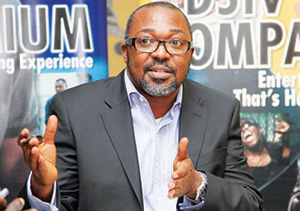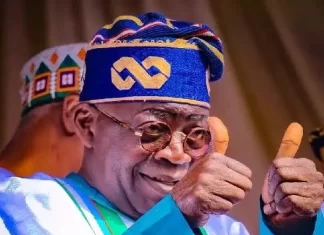Nigeria’s pay television (pay TV) is dogged by unfulfilled consumer expectations amid poor regulation, reports Correspondent SAM NWOKORO.
Nigerians love new things. And those who invented technology have been milking them dry with a series of petty techno-wizardry. They call it innovation. No other area is this gimmick more prevalent than in information technology (IT).
An example will suffice. When the General System of Mobile telecommunication or (GSM) was rolled out in 2001, a Nokia handset was used to launch it. Nokia has pushed out no fewer than 10 different models since then.
When Blackberry was introduced between 2004 and 2005 with a little bit of advanced signal reception, it incorporated up to 32 platforms. It was a handheld mobile workstation.
But because the IT rave had not permeated the populace when the first generation of Blackberry was introduced, patronage was low, concentrated only on upper crust consumers such as corporate chief executive officers (CEOs).
Then Blackberry was reinvented, with some toy inputs such as pixel camera, headphone, et cetera. Today, like other handset brands, touch screen is the vogue.
Technology-sound reception is the main thing that makes a phone. Some have now realised that the earlier berries were far superior in soft and hardware than the new rave touch screen.
Enter pay TV
This same trend: exploitation by gimmicks has come to television transmission, especially pay TV.
The advent of Dstv, the satellite pay-tv from South Africa, has created competition in the delivery of multi-channel television programmes.
The deregulation of broadcasting in 1992 and the launch of mobile telecommunications in 2001 with multimedia platforms help feed attraction to Dstv.
However, the scary subscription rates of Dstv led consumers to stick to local stations which link-up with foreign channels for an increasingly sophisticated viewership no longer satisfied with local content.
The popularity of European soccer leagues, coupled with the engagements of Nigerian football players in foreign clubs, led to the craving for TV stations with a variety of channels.
Since Dstv was the channel with satellite monopoly, it became necessary for local entrepreneurs to fill in the gap so that soccer and entertainment come from a variety of channels.
Growth of pay TV
There are an estimated 1.5 million active pay TV subscribers in Nigeria. But the figure may have increased in the past one year, judging by the number of new entrants into pay TV.
The channels include Dstv, African Cable Television, Gotv, Startimes, Consat, CTL, Metro Digital, Montage Cable Network, MYTV, and Trend-tv.
Nigeria is a big viewing market in terms of population and Gross Domestic Product (GDP). Sport remains a dominant factor in pay TV, a status symbol among low and middle income earners.
Current subscriber numbers are estimated to double before the end of the decade as Nigeria improves IT infrastructure.
Kola Aluko, CEO of Atlantic Energy and a member of African Business Roundtable, reported on his online portal, Newswire Africa, that “In Nigeria, the structural adjustment programme (SAP) launched by the federal government in 1986 marked the start of a progressive withdrawal of state involvement from a number of sectors.
“Until that time, television broadcasting had been among the industries in Nigeria that were entirely state-run.
“A proliferation of private stations following deregulation in 1992 included the arrival of Digital Satellite Television (Dstv), the first pay TV operator in Nigeria.
“Dstv is owned by a South African firm, MultiChoice and is the leading satellite TV service in sub-Saharan Africa.
“It was not until 2004 that Frontex Satellite Television became the first indigenous pay TV in Nigeria.
“Others followed, including the sport and entertainment-focused HItv, established by lawyer and businessman, Toyin Zubair, and DAARSAT, another direct-to-home service that offered the country’s first high definition programming.
“After promising starts, all the stations collapsed within two years due to intense competition and a difficult operating environment”.
Aluko noted that competition in pay TV is a cat and mouse race, leading to uncoordinated regulation and sharp practices which the Nigerian Broadcasting Commission (NBC) cannot tackle because there is no law that penalises errant stations.
Complaints galore
Complaints against the pay TV industry vary but they are chocking and irritating. Much as the industry has brought in competition in entertainment, it has also brought out the worst in the attitude of regulators and the extent to which the consumer can be tolerant.
A pay TV station may put out a promo saying, “Buy one decoder, get the other free.” But it is a ruse because you don’t get any one free even if you buy a dozen instantly. Yet no one punishes or reprimands the station.
You buy a pay TV decoder smiling home that you have a multichannel entertainment bouquet, only to discover that contraption does not even respond to electricity or has fewer channels than advertised.
You make endless phone calls to supplier’s help desk, only to discover no one in particular is in charge. You want to lodge a complaint with the NBC, but you do not really receive attention from anybody.
For instance, efforts by TheNiche to get answers from these two agencies were not successful. None of the phone numbers on their portals went through. A physical visit to the Lagos office of the NBC did not help matters.
“The person in charge to attend to your complain is not around”, was the kind response TheNiche got, delivered in a very courteous manner.
Some subscribers recounted their experiences below:
Abdullahi Tolani: “I made my subscription since March 26, 2015, and my subscription was not enabled more than two weeks after I subscribed. It took me repeated visits to the Gotv office before it was enabled.”
Dominic Nkechukwu: “I have been trying to activate my Gotv online payment but can’t get it right because, they are telling me there is no smart card in my state. I could not understand.”
Ilele Chukwu: “I subscribed on June 10 and more than 24 hours after, I had to call and plead with the vendors before my decoder was enabled.”
Orioha Effizy: “This is totally unacceptable, very wrong. You increase your subscription fees, yet you (Gotv) can’t make an adjustment online. Instead of me paying extra bank charges and still come and pay at the counter and then tell us how to talk to your customer care.”
What Effizy found most irritating is Gotv’s pre-recorded response that “comes from a fast-talking receiver, usually in foreign accent, who rambles and rambles you don’t even understand what he is talking about.”
When TheNiche called Gotv’s customer care, the same pre-recorded response came through, rambling hundreds of words per seconds.
Some customers complained of spending as much as N500 or more of airtime trying to listen to a pay TV recorded message on trouble shooting.
Many frustrated subscribers may have lost money by throwing away malfunctioning decoders they had bought without getting replacement or by buying another one due to poor quality consumer service, especially by Gotv.
When Multichoice, an offshoot of Dstv, berthed in 2010, it won a rapturous welcome from viewers who love watching European soccer and Movie channels.
However, allegation trail the subterfuge of Multichoice which owns GOtv.
Experts say Gotv is supposed to transmit on DTH (Direct to Handheld) platform, meaning its reception is restricted to handheld devices, like mobile handsets and IPad and IPhone; and not on Digital Terrestrial Television (DTT) on which it is transmitting, and on which only Dstv is allowed to transmit.
This cheating makes it difficult to sanction Gotv separately since it is just an another antenna of octopus Dstv whose exorbitant charges chased viewers to patronise Gotv.
Other complaints about Gotv include non compensation for time lost in reconnection when reception is cut off, most times due to rainfall or signal loss; and no compensation for lost channels.
After several phone calls and emails to the Consumer Protection Council (CPC) were not responded to, TheNiche visited its portal which showed that the CPC has held meetings with pay TV operators to address complaints, but nothing has changed.
CPC Director General, Dupe Atoki, confirmed that “the council is currently investigating pay TVs for complaints ranging from poor quality of service such as incessant disruption of service without compensation while subscription is current, and wrongful abrupt disconnection of service during subsisting subscription.
“Monthly subscription lasting less than 30 days and poor redress mechanisms and customer services, advertisement on customer care lines at the expense of consumers, poor implementation of decoder swap policy, and effecting price increases for subscription despite payment before due date of increment.”
When subscribers lodge complaints with CPC, pay TV operators counter that they are not answerable to the CPC but to the NBC – as the case of Gotv shows. There is no law that allows the CPC to penalise pay TV stations for unsatisfactory service.
Hurdles
Pay TV operators face a number of hurdles, including content acquisition, content service delivery (programmes may not catch on with viewers in a short time to ensure patronage), subscriber acquisition, and customer support.
In Nigeria, Dstv Access (a bouquet) costs N1,500 per month; Dstv Family (N2,800), Dstv Compact (N5,800) and Dstv Premium (N10,000).
But in South Africa, an average family pays 200 rands (about N4,00) per month to access a number of channels.
The CEO of ACTV, Godfrey Okeh, said: “Challenges vary depending on the content. Some are more expensive than others because they have so much clout, like the Discovery Channel.
“Content price ranges from $1 to $100,000. There is no fixed price for content depending on how desperate the owner wants to sell.”
Indigenous pay TV is not yet able to compete with Dstv or Startimes, another multinational pay-tv giant that came after Dstv.















